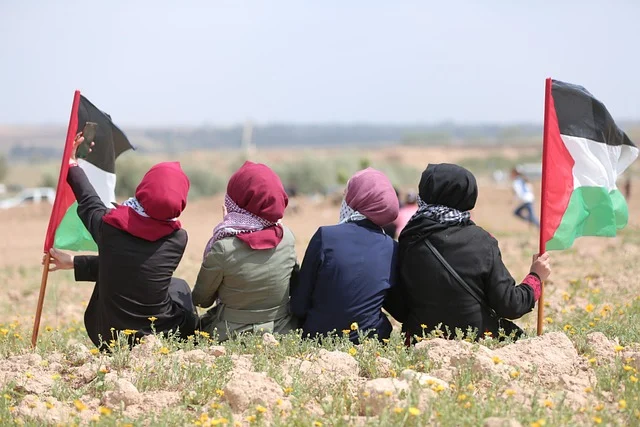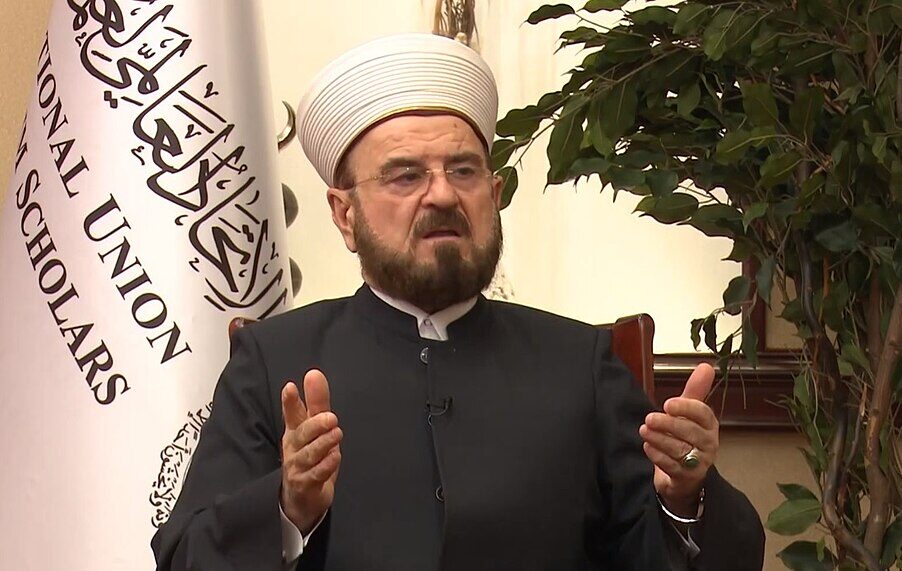In late March 2025, a significant religious decree, or fatwa, was issued by the International Union of Muslim Scholars (IUMS), calling for “jihad” against Israel in response to the ongoing conflict in Gaza. This fatwa, supported by prominent figures like Mufti Taqi Usmani and backed by organizations such as the Indonesian Council of Ulema, has sparked global attention and controversy. This blog post explores the context of the 2025 fatwa against Israel, its stated objectives, reactions from various parties, and its potential implications for the Israel-Palestine conflict.
Background of the 2025 Fatwa Against Israel 📜⚔️
The fatwa, issued on March 28, 2025, declares that “jihad against the Israeli occupation is an individual obligation upon every capable Muslim.” It urges Muslim-majority countries to intervene militarily, economically, and politically to halt what the IUMS describes as a “genocide” in Gaza. The decree also calls for a reassessment of peace treaties with Israel and a comprehensive blockade of the country. It was further emphasized during the National Palestine Conference in Islamabad, where scholars argued that resources spent on voluntary pilgrimages, like Umrah, should instead support Palestinian resistance.
The 2025 fatwa against Israel comes amid intensified Israeli military operations in Gaza, which resumed after a ceasefire collapsed in March 2025. According to the Hamas-run Gaza Ministry of Health, over 51,000 Palestinians have been killed since the conflict escalated following Hamas’s October 7, 2023, attack on Israel, which killed approximately 1,200 people and took 251 hostages. The IUMS cites Israeli actions, including airstrikes and blockades, as justification for the fatwa, labeling them a “systematic cleansing” of Palestinians.
Key Reactions 🗣️
- Pakistan and Indonesia: Prominent Pakistani scholars, including Mufti Taqi Usmani, endorsed the fatwa, framing it as a religious duty. The Indonesian Council of Ulema (MUI) also expressed support, aligning with the IUMS’s call for action.
- Social Media Sentiment: Posts on X reflect strong backing from some users, with individuals highlighting the fatwa as a significant step, speculating on its potential to escalate regional tensions.
- Egypt’s Grand Mufti: Nazir Ayyad, Egypt’s highest religious authority, rejected the fatwa as “irresponsible,” arguing that no single group can issue such decrees on matters violating Sharia principles. Egypt, which signed a peace treaty with Israel in 1979, maintains a cautious stance due to its geopolitical alignments.
- Israel: Israeli officials expressed outrage, particularly criticizing Qatar, where the IUMS is based, for not condemning the fatwa. Israel views the decree as a call for global terrorism, with experts like Dr. Nesya Shemer noting its classification of Israel as a “kafir” (infidel) enemy, a departure from traditional Islamic views of Jews as “People of the Book.”
- Western Concerns: Posts from social media suggest alarm in Germany, where the fatwa is seen as a potential threat to public security due to its ties to organizations like the Muslim Brotherhood.
Implications of the 2025 Fatwa Against Israel 🔥
The fatwa risks escalating tensions in an already volatile region. By urging Muslim-majority countries to intervene, it could strain diplomatic relations, particularly for nations like Egypt and Jordan, which maintain peace treaties with Israel. The call to cancel normalization agreements may also pressure countries like the UAE and Bahrain, signatories of the Abraham Accords.
While the fatwa is non-binding, its symbolic weight could galvanize militant groups and individuals, potentially increasing attacks on Israeli targets. However, the practical ability of Muslim-majority countries to act on the fatwa is limited by internal political dynamics, economic constraints, and existing alliances with Western powers.
Critical Perspective 🤔⚖️
While the fatwa reflects genuine outrage over the humanitarian crisis in Gaza, its blanket call for jihad oversimplifies a complex conflict and risks polarizing communities further. Egypt’s rejection highlights a divide within the Muslim world, where state-aligned religious authorities prioritize stability over ideological proclamations. Moreover, the fatwa’s failure to address Hamas’s role in the conflict, including its October 7 attack and governance challenges in Gaza, raises questions about its objectivity.
Conclusion
The IUMS fatwa against Israel underscores the deep emotions and divisions surrounding the Israel-Palestine conflict. While it amplifies calls for action against Israel’s military campaign in Gaza, it also risks escalating violence and undermining diplomatic efforts. As the conflict continues, the international community must prioritize humanitarian aid, ceasefire negotiations, and long-term solutions that address the root causes of the crisis. The fatwa, though significant, is but one voice in a cacophony of perspectives—its impact will depend on how it is received and acted upon in an already fractured geopolitical landscape.
Sources:
Middle East Eye, The Jerusalem Post, BBC News, Al Jazeera, Reuters, The Times of Israel, posts on X.
Further Reading:
Qatar Tacitly Approves Muslim Scholars’ Call for ‘Armed Jihad’ Against Israel




